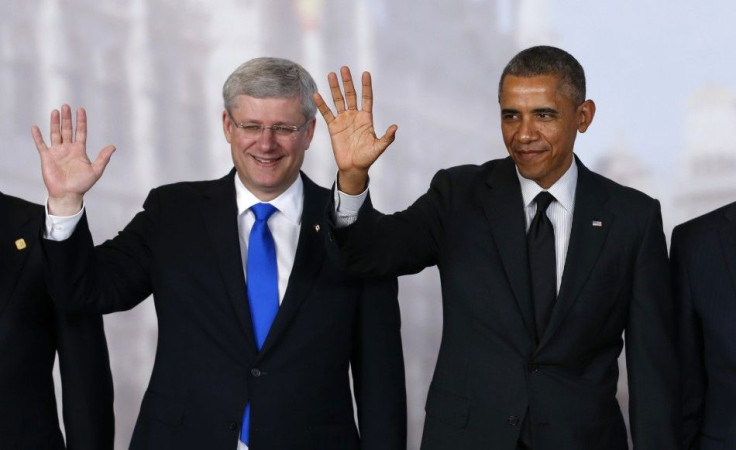Canada under pressure to scrap farm marketing boards for TPP: not keen on committing it before Oct polls

Canada’s integration into Trans-Pacific Partnership is calling for a hard sacrifice. According to reports, the latest round of TPP talks in Hawaii has the clear message that the U.S. and other Pacific Rim trading partners want Canada to make - a commitment for ending its protectionism in supply management of dairy and poultry products.
For Canada, farm marketing boards have worked well. It delivers a system of fixed prices for dairy products, poultry and eggs, and there are no vagaries of profitable margins. Despite trade partners calling supply management a trade barrier, Canada has lived with it and stitched free trade agreements with 44 countries including the North American Free Trade Agreement. It also stuck significant trade deals in recent times with South Korea and the European Union. Many critics, Canada argues, use non-tariff barriers like labelling rules and safety standards to block imports.
Staple Of All
For Canada's politicians, right from the prime minister to those in the opposition, the cause of farm marketing boards is supreme, and they are ready to defend it in any forum, notes the Yahoo! News report. The major attraction is that supply management forces food consumers to pay for its cost of production. It can match supply quotas with market demand and keep the industry stable and prices predictable. So, farmers do not crave for government subsidies or bailouts. Price comparisons are fraught with adjustments made in variables like transportation costs and retail competitiveness.
There are also studies that say thanks to these boards, Canadians do not pay much for milk than the consumers in unregulated markets. An example is Australia, when it ended supply management, its consumer price for milk shot up. In the U.S, unregulated farm prices are making taxpayers pay twice. In the last major farm bill passed in the U.S. Congress, US$1 trillion had to be doled out to keep American agriculture afloat.
Marketing boards are also making the process of buying local and fresh Canadian products easy. Since the local farm businesses are kept stable unlike the export-driven beef, pork or grain farmers, who often fall on bad times, there are stable prices to help local businesses and also patronise vet clinics, machinery dealerships and farm supply stores. However, when Canada undertook a study with the Conference Board of Canada in 2014, for a ten-year phase out of farm marketing boards, the cost was found to be between CA$3.6 billion (AU$3.8 billion) and CA$4.7 billion (AU$4.97 billion) just for the dairy sector.
Dilemma
Canada’s dilemma in TPP is two fold--losing its protected turf and a bad timing for the talks. Any bad TPP deal for Canada would be a blow to the Conservatives' election manifesto of sound economic management. Trade Minister Ed Fast has so far taken a cool stand without over reacting to American demand for dismantling marketing boards for dairy and poultry.
On TPP’s timing, there is pressure from the U.S. and Japan to conclude it at the earliest. But Harper government is keen to stretch final bargaining until its own vote in Otober is over for ensuring that electoral risks from TPP’s outcome are manageable.
(For feedback/comments, contact the writer at feedback@ibtimes.com.au)




















